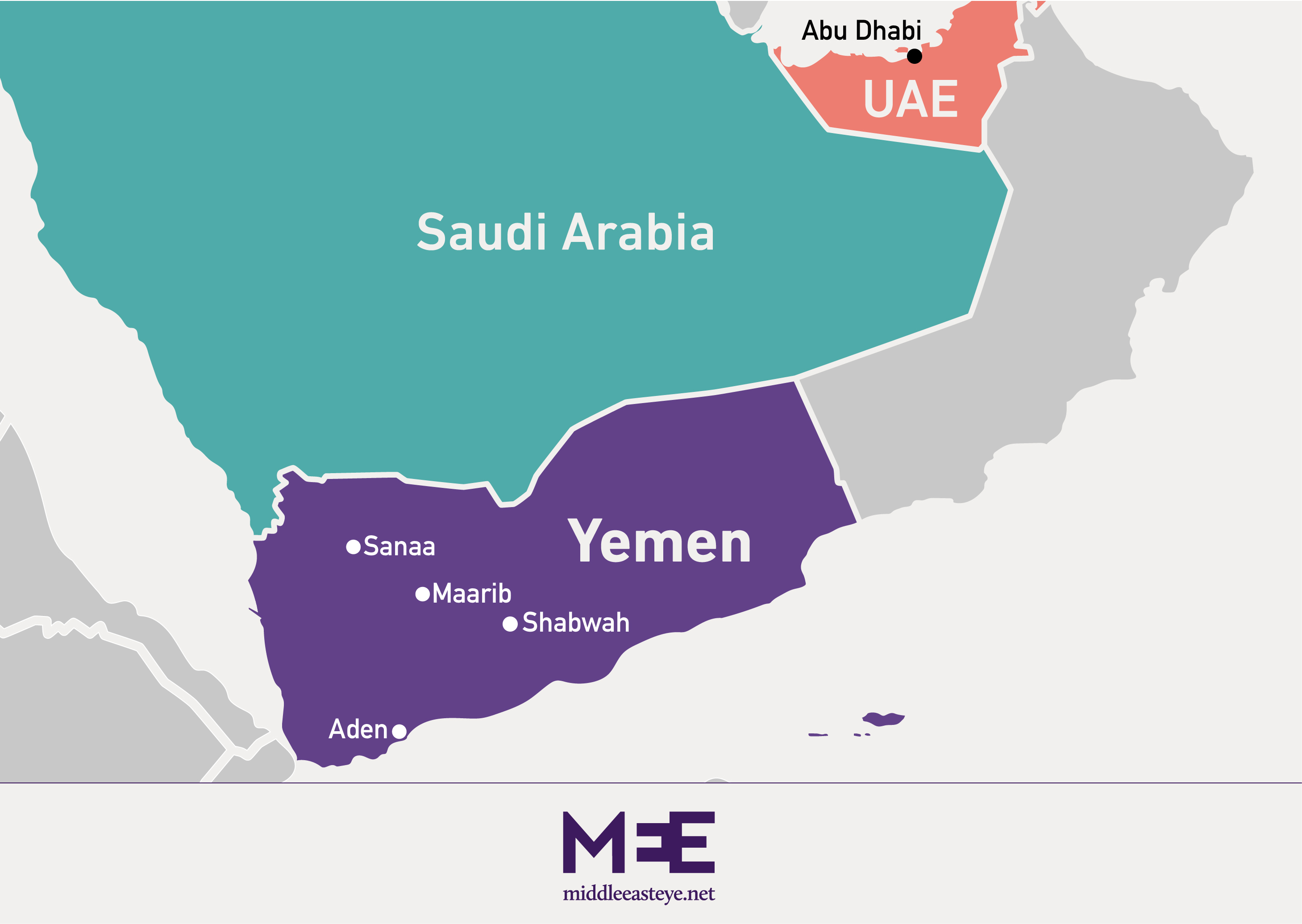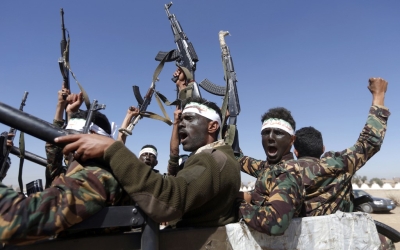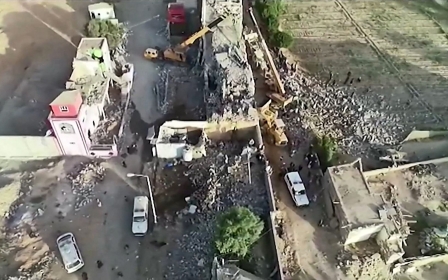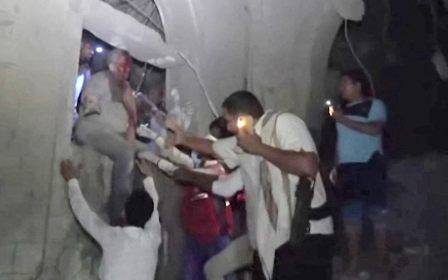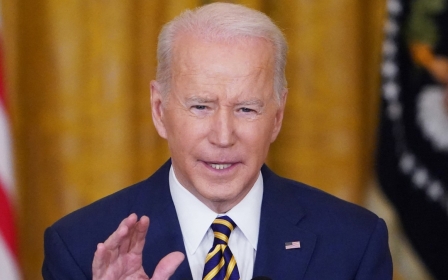Yemen: Southern UAE-backed troops halt northern operations
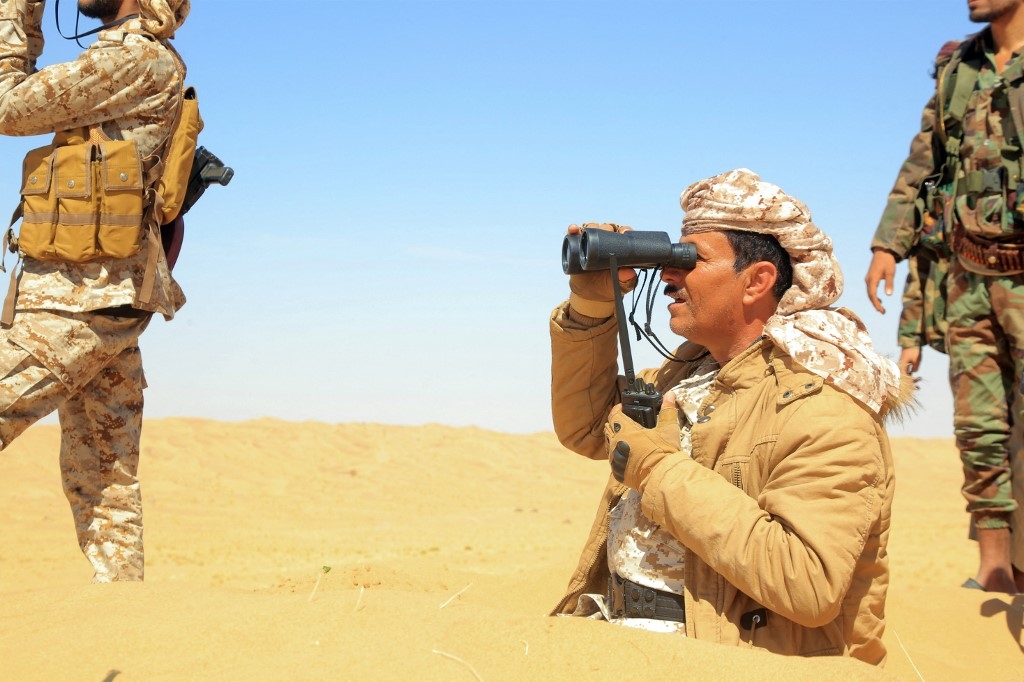
The Giants Brigades, Yemeni southern troops backed by the United Arab Emirates, have suspended their operations in the north after weeks of aiding the Saudi-backed government forces in their battle to capture the southeastern province of Shabwah from the Houthis and advancing into rebel-held areas of Marib to the north.
That advance has come to a halt since 11 January, Middle East Eye has learned, when the spokesperson of the Saudi-led coalition, Turki al-Maliki, announced the liberation of three districts in Shabwah.
A Giant Brigades fighter in Shabwah told MEE that the forces halted their operations in Marib after reaching populated areas, as they didn't want to target those areas.
"We received directions to stop advancing, but the main reason behind that was the residential areas we reached," he said. "The Houthis are hidden amid civilians, so if we advance there will be a big loss among civilians. So we stopped."
New MEE newsletter: Jerusalem Dispatch
Sign up to get the latest insights and analysis on Israel-Palestine, alongside Turkey Unpacked and other MEE newsletters
Composed of around 15,000 fighters, the Giants Brigades, known in Arabic as al-Amaliqa, have been a major opponent of the Houthis during Yemen's seven-year civil war. They are part of the Yemeni National Resistance coalition, an independent force fighting on behalf of the internationally recognised government.
Despite the fact that most of their fighters hail from the south and receive UAE funding, the Brigades have been keen to deny links with the similarly UAE-backed Southern Transitional Council (STC), repeatedly stressing their loyalty to President Abd Rabbuh Mansour Hadi. The STC controls Aden and its environs, and seeks independence for Yemen's south.
For the vast majority of Yemen's conflict, the Giants Brigades have been active in the west of Yemen, fighting in Taiz, Hodeidah and down the western coast. However, they moved east to Shabwah in December following the sacking of the province's governor, Mohammed Saleh bin Adyo, who had been critical of the UAE's control of the important Balhaf seaport.
His replacement, pro-UAE governor Awadh al-Awlaki, prompted the Giants Brigades to move into the province and establish themselves as the main military power.
The move was viewed as a way of backing Awlaki and ensuring UAE dominance in the province, something the group has denied.
"Our colleagues moved to Shabwah as reinforcements to the forces there to liberate Shabwah from the Houthi militia and not for any other reason," a fighter with the brigade on the western coast told Middle East Eye at the time.
He added that securing the province had become a "priority" as it would allow easier use of the Balhaf seaport, which has been under Emirati control since 2016.
At the same time as the intervention by the Giants Brigades, the head of the STC announced that its forces will keep advancing in the north to support northerners and keep the south safe from the Houthis.
'Big mistake'
Many southerners have been critical of the engagement of their troops in the north, away from their own battleground.
"From the very beginning, they shouldn't have gone to Marib. It was a big mistake to go to the north," Mahmoud al-Yafie, a pro-STC resident in Aden, told Middle East Eye.
'Northern people don't care about us, and they have targeted the south more than once, so why should we go to fight with them'
- Mahmoud al-Yafie, a pro-STC resident in Aden
"We need to liberate the south and recapture our country, so why are we fighting in Marib?”
Yafie said that the forces stopped their advance on Marib after they realised that southern people were not happy with what they were doing.
"Northern people don't care about us, and they have targeted the south more than once, so why should we go to fight with them," he said. "Northern people like the Houthis, who are their brothers, and they are our enemies, so how can we trust them?"
Yafie said there are still some other southern areas to be captured from the Houthis, including in Lahj and al-Dhale provinces.
"Fighting in Marib is a trap to the southern forces, and they will be killed in the north, so we are happy that they have stopped advancing," he said.
The Giants Brigades fighter told MEE that their next advance will not be towards "deep areas" in Marib but only to areas that keep the south safe enough. He agreed that they shouldn't be involved in the fighting in Marib province.
"We understand the demands of our brothers in the whole south, and we aren't going to liberate the north from the Houthis. All we need is to protect the south. We will not advance in further areas."
Houthi escalation
The UAE was part of the Saudi-led coalition that intervened in Yemen in 2015 to reinstate the internationally recognised government of Hadi, who was ousted by the Houthis in late 2014.
The Gulf country has announced that it has reduced its military involvement in Yemen since 2019, but analysts have pointed out it retains significant influence through backing Yemeni fighters.
Since 25 December, the fighting has intensified as the Saudi-led coalition launched a "large-scale" attack on Yemen's Sanaa after missiles fired by the Houthis killed two people in the kingdom, the first such deaths in three years.
The attack killed three people, and Houthi spokesperson Yahya Saree warned Saudi Arabia of a "painful" response if the coalition did not stop its "aggression".
On Monday, the Houthis claimed responsibility for unprecedented attacks on the UAE capital, Abu Dhabi, that left three people dead and six wounded.
A Houthi leader in Sanaa told MEE following the attacks that his group targeted the UAE "because it returned to the front line of the Yemen conflict again to fight us while we were about to take over Marib".
Middle East Eye delivers independent and unrivalled coverage and analysis of the Middle East, North Africa and beyond. To learn more about republishing this content and the associated fees, please fill out this form. More about MEE can be found here.


